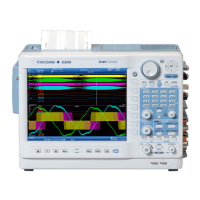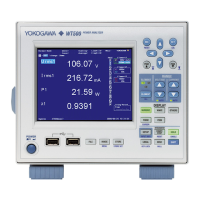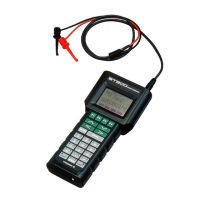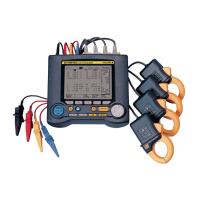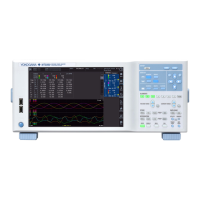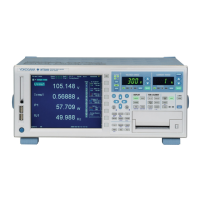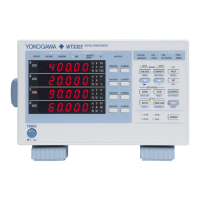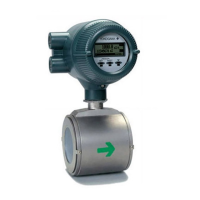6-10
IM 701240-01E
When Measuring Temperature
Range Resolution
K, E, J, T, L, U, N, R, S, B, W 0.1°C
Au7Fe 0.1 K
Trigger Slope
Select how the trigger source is to cross the specified level for activating the trigger from
the following three choices.
: Activated when the trigger source changes from below the trigger level to above
the trigger level (rising).
: Activated when the trigger source changes from above the trigger level to below
the trigger level (falling).
: Activated on either a rising edge or falling edge.
Trigger Hysteresis
Sets a width to the trigger level so that triggers are not activated by small changes in the
trigger signal. Select the trigger hysteresis from the following three types.
When Measuring Voltage
: Approximately ±0.1 division of hysteresis around the trigger level.
: Approximately ±0.5 division of hysteresis around the trigger level.
: Approximately ±1 division of hysteresis around the trigger level.
When Measuring Temperature
: Approximately ±0.5°C (K)
: Approximately ±1°C (K)
: Approximately ±2°C (K)
When Measuring Strain
: Hysteresis of approximately ±2.5% of the range around the trigger level.
: Hysteresis of approximately ±12.5% of the range around the trigger level.
: Hysteresis of approximately ±25% of the range around the trigger level.
When Measuring Acceleration
: Hysteresis of approximately ±0.1 divisions of the range around the trigger level.
: Hysteresis of approximately ±0.5 divisions of the range around the trigger level.
: Hysteresis of approximately ±1 divisions of the range around the trigger level.
When Measuring Frequency and Other Parameters on the Frequency
Module
: Hysteresis of approximately ±0.01 divisions of the range around the trigger level.
: Hysteresis of approximately ±0.5 divisions of the range around the trigger level.
: Hysteresis of approximately ±1 divisions of the range around the trigger level.
Trigger is activated (When set to rising edge )
Hysteresis width
Trigger level
Hold Off
See section 6.4.
6.5 Setting the Edge Trigger (SIMPLE)
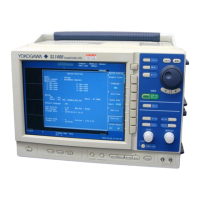
